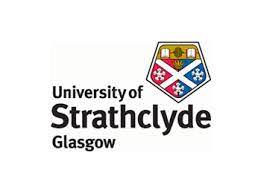University Of Strathclyde Study Shows 95 Percent Hospitality Workers Witnessed Or Experienced Abuse During Pandemic
Abuse was witnessed or experienced by 95% of hospitality workers during the first year of the COVID-19 pandemic, according to a University of Strathclyde report.
The study by Strathclyde Business School found that, while three-quarters of the abuse came from customers, a number stated that it was also perpetrated by owners, managers or colleagues.
More than a third of respondents said they were not asked to sign a contract prior to starting their most recent job. Some stated that they were not being paid the National Minimum Wage and when they were, many had little or no scope for pay rises.
Nearly 300 workers in Scotland’s hospitality sector responded to the survey.
The report recommends:
• enforcing regulation for organisations to develop systems for pay rises
• management training programmes around harassment by customers, managers or colleagues
• organisations consulting with prospective employees on their employment and flexibility needs, to provide mutually suitable contracts
• management with a focus on individual development, respect, and dignity at work
• partnership agreements between employers and employee representatives.
Dr Anastasios Hadjisolomou, of Strathclyde’s Department of Work, Employment and Organisation, a co-author of the report, said: “This study highlights and confirms long-standing employment issues and unfair work in the hospitality industry, which have been exacerbated by the COVID-19 pandemic.
“Scotland is a nation with a vision for Fair Work for all. However, for this vision to come to life, we call upon policy makers, employers, employees and their representatives to work together to address these persistent issues and promote fair work.”
The survey was based on the Fair Work principles of fairness in pay, conditions, contracts, management and representation. It was conducted between June and October 2020 – and covered the period when hospitality venues reopened following the first national lockdown, under strict, legally-imposed social distancing measures.
The abuse witnessed or experienced by staff took the form of verbal, psychological, physical, racial, ethnic or sexual abuse, as well as sexual harassment and bullying. However, the majority did not report what they endured or witnessed, saying that they felt such abuse was something to be ‘accepted’ by hospitality sector workers.
Although most respondents were on full-time contracts, a number were on precarious contracts. Some had not signed a contract or been given terms of employment before starting work.
Many staff reported working beyond their contracted hours with no overtime pay, no holiday pay entitlement and regularly working through their scheduled breaks. Nearly 80% of respondents were required to work through public holidays without receiving any overtime pay or extra time off.
Fewer than 6% of respondents were trade union members; stated reasons included a lack of belief that their management would approve of them joining a union. However, the impact of the pandemic on hospitality workers was noted as a potential reason for joining.
Around a third of respondents stated they did not feel they were treated with respect at work and the same number reported receiving little or no supportive feedback from management. One participant claimed that they believed the cultural view of hospitality workers was to blame, with people thinking of them as people who had “failed at education.”

